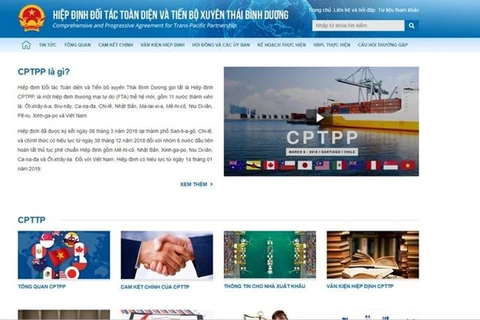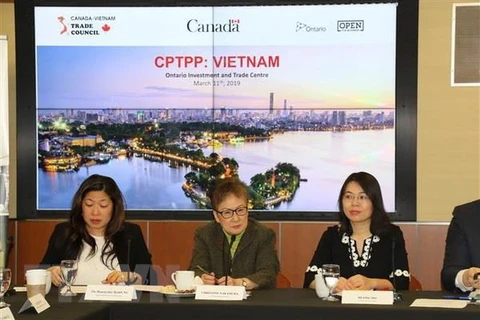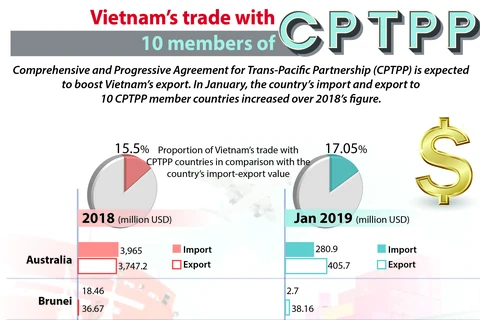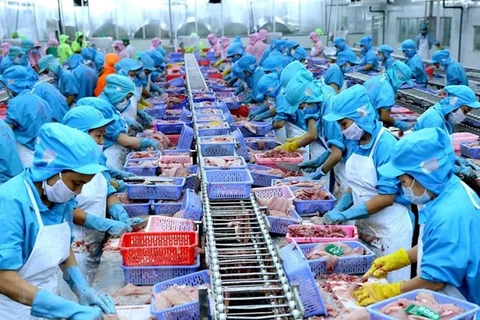HCM City (VNA) – The Comprehensive and Progressive Agreement for Trans-Pacific Partnership (CPTPP) will bring more opportunities than challenges to businesses, so they should swiftly make use of this deal to promote export, heard a workshop in Ho Chi Minh City on March 26.
The CPTPP, which officially took effect in Vietnam on January 14, gathers 11 member states, namely Australia, Brunei, Canada, Chile, Japan, Malaysia, Mexico, New Zealand, Peru, Singapore, and Vietnam that altogether make up 13.5 percent of the global GDP.
Nguyen Thi Thu Trang, Director of the WTO and integration centre at the Vietnam Chamber of Commerce and Industry (VCCI), said the CPTPP opens up chances for Vietnam to access new markets that it hasn’t signed bilateral trade agreements with like Canada, Mexico and Peru. It will also help the country seek new partners in the field of public procurement in traditional markets.
Competition in the global market is inevitable, even with or without the CPTPP, and this pressure affects all enterprises, not only Vietnamese ones.
However, competition with foreign firms will help Vietnamese manufacturers diversify material supply sources and production technology while reducing input costs. Food, beverage, textile-garment, footwear, plastics and transport vehicle industries are forecast to have major chances to promote production and exports.
Additionally, the CPTPP will also foster e-commerce and create more chances for Vietnamese firms to take part in distribution services, Trang said.
She added Vietnam and other members have complementary export structures while their targeted market segments are different, so their products do not directly compete with one another. On the other hand, the CPTPP enforcement also means the Government will further improve the business climate and provide more favourable conditions for trade, thus facilitating the development of enterprises.
A problem facing Vietnamese companies amid the CPTPP implementation is how to capitalise on opportunities, especially the capability to meet rules of origin to benefit from preferential treatment and overcome non-tariff barriers.
At the workshop, lawyer Vu Xuan Hung, deputy head of the arbitration affairs division at the VCCI branch in HCM City, said Vietnamese businesses’ capitalisation of free trade agreements remains modest.
Tariff reduction commitments under the CPTPP are very high. However, there are even more non-tariff barriers that are hard to satisfy than tariff ones, he said, noting that many countries have set up technical standards to hamper the import of certain commodities. If enterprises fail to meet these standards, they will be unable to export goods, let alone preferential tariff treatment under the agreement.
Hung added if businesses actively improve their products’ quality to meet other CPTPP members’ requirements, opportunities to expand markets are vast.
Participants in the event urged local firms have a good grasp of the CPTPP’s articles and devise suitable production strategies so as to overcome non-tariff barriers and promote exports right at present.-VNA
VNA

























